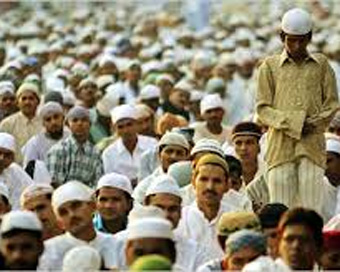 New Delhi, Apr 26: The Congress made it clear on Friday that it had not promised a sub-quota for OBC Muslims as the matter is pending before the Supreme Court. It said the party cannot do anything until the matter is resolved in the court.
New Delhi, Apr 26: The Congress made it clear on Friday that it had not promised a sub-quota for OBC Muslims as the matter is pending before the Supreme Court. It said the party cannot do anything until the matter is resolved in the court.
The clarification came from Union Law Minister Kapil Sibal after the Bharatiya Janata Party, responding to a newspaper report, described it as a “last desperate” act by the Congress to get Muslim votes. The report claimed that the “promise” of a sub-quota had been made in a supplementary manifesto of the Congress, a claim denied by the party.
“The Congress has not come out with any sub-manifesto,” Mr. Sibal said, pointing out that it was only one of the suggestions made to the party during one of the public consultations it had held before framing manifesto.
Those suggestions that were accepted were included in the manifesto, he said, while those that needed more work have been placed on the Congress website as suggestions that need to be deliberated on.
“We have put it before the people,” Mr. Sibal said, “These are suggestions for consideration, when the government comes to power. These are suggested policies and programmes, which have come up in the open manifesto consultation process. There is no appeasement, we must respect the sentiments of the public.”
He also stressed that the issue of a sub-quota for backward Muslims was pending in the Supreme Court and as long as the matter is not resolved, the party can do little.
On the Congress website, the party has listed the suggestions that came up in the course of the open consultations but which were not included in the manifesto. “We recognise,” the website says, “that there are some more expectations expressed by these groups, which will continue to guide the Indian National Congress’ efforts towards their development. The Congress is committed to finding a way forward towards meeting all such expectations of these groups, by putting in concerted efforts, as detailed below.”
Some of the suggestions that could not be included in the manifesto were extension of Scheduled Caste status to all Dalit minorities; examining the feasibility of mandating the next Delimitation Commission to ensure that minorities are not disenfranchised through reservation of constituencies where minority population equals or exceeds the SC/ST population; ensuring adequate representation of minorities in all public positions; ensuring that funds earmarked for minorities are allocated to various minority groups in a population-proportionate manner and earmarking a quota of 4.5 per cent for backward Muslims in the existing OBC reservation.
On Thursday, Bahujan Samaj Party chief Mayawati pitched for a sub-quota for OBC Muslims and also wanted quota benefits extended to the poor from upper castes.
Addressing a rally in Gonda, Ms. Mayawati said, “Along with Muslims, our party wants to extend benefit of reservation to poor from the upper castes.”





Comments
Add new comment